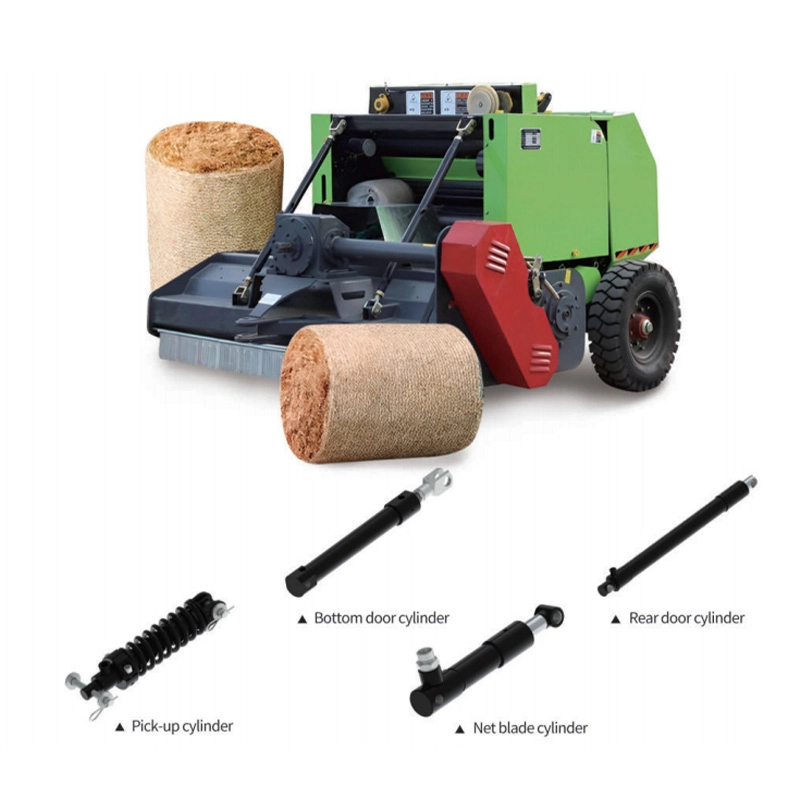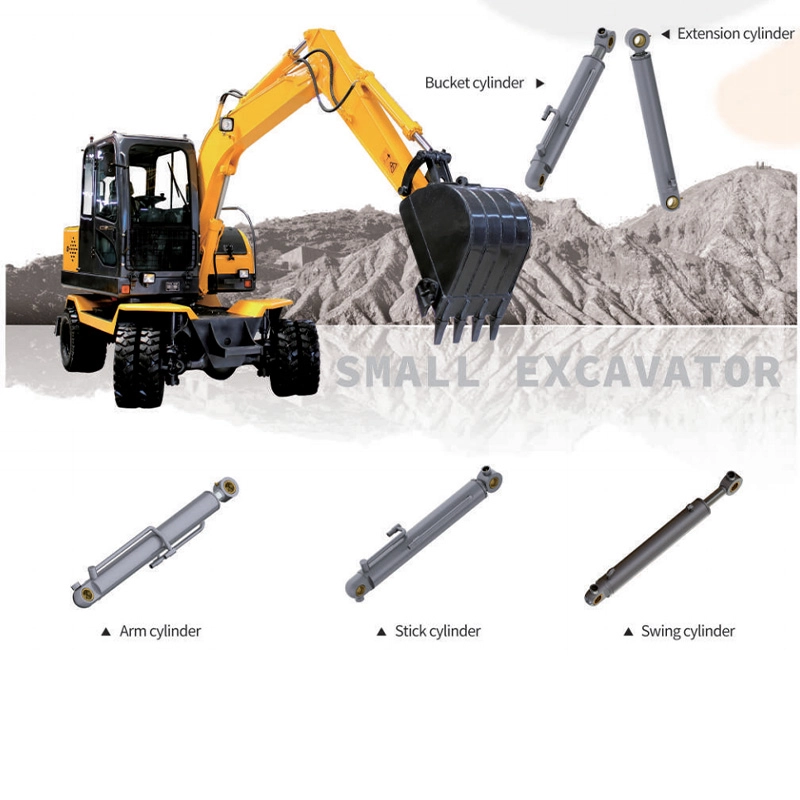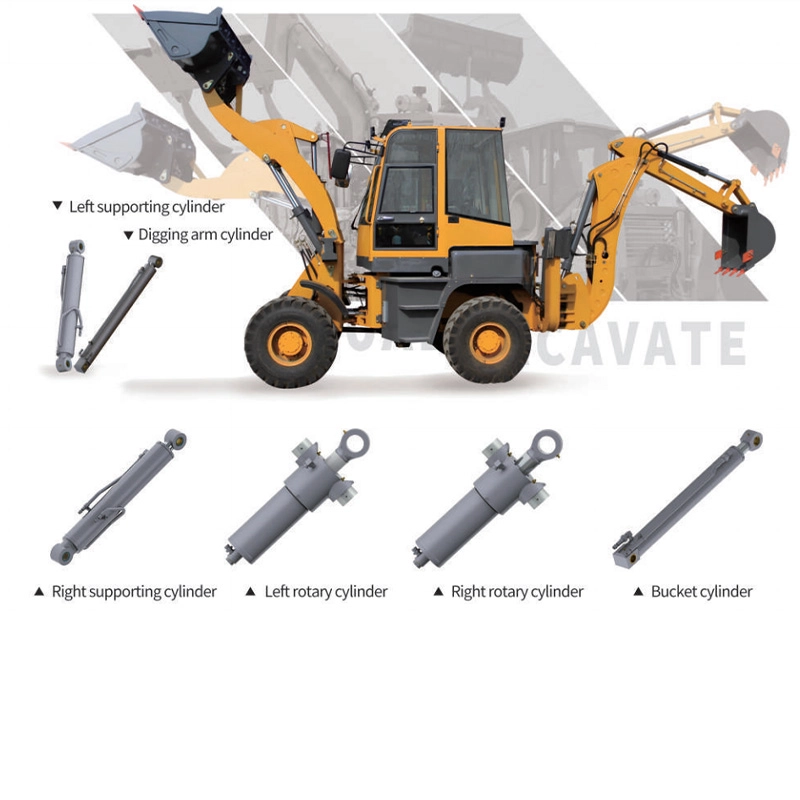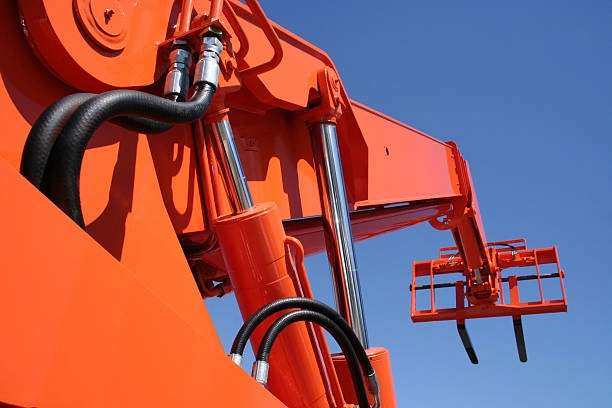Recognizing Performance Issues in Hydraulic Cylinders
Sluggish or Uneven Cylinder Movement
If your tractor’s hydraulic cylinder moves slowly or wobbles, it’s trying to tell you something’s off. A good cylinder slides out and back nice and easy. But when it shakes, jerks, or changes speed for no reason, there’s trouble. Maybe there’s friction inside. Or the seals could be old and tired. Sometimes, air gets trapped in there, messing things up. A shaky or jumpy cylinder means the piston and rod aren’t moving right.
Inconsistent Lifting or Lowering of Tractor Attachments
Farm tools like plows or harvesters need cylinders to lift and lower smoothly. If your attachments act funny—like they won’t stay up or move weirdly—it could be a leak inside. Or there might not be enough fluid pressure to do the job. A slow cylinder often has a leak that’s stealing its power. This slows you down on the farm. Worse, it could break your equipment if you keep going.
Reduced Load-Bearing Capacity During Operation
When your cylinder struggles to hold heavy stuff, something’s wrong. Worn-out seals or a beat-up piston might be the cause. If the cylinder can’t lift like it used to, fluid might be sneaking past the seals. That’s a problem that gets bigger if you don’t fix it soon.
Identifying Physical Damage on Hydraulic Cylinders
Visible Leaks Around Seals and Fittings
Oil dripping around your cylinder is a big red flag. If you spot oil pooling by the base or near fittings, the seals are likely shot. Or maybe the connectors got damaged. Take a close look at seals and O-rings. Check for cracks, weird wear, or anything that looks broken.
Dents, Bends, or Scoring on Cylinder Rods
Dents, bends, or scratches on the rod mess up its smooth motion. These marks can also hurt the seals. If you let them sit, the seals wear out faster. Plus, dirt can sneak into the cylinder, causing more trouble down the line.
Corrosion and Rust Compromising Cylinder Integrity
Tractor cylinders spend a lot of time outside. That makes them easy targets for rust. Wet weather eats away at the metal bit by bit. Over time, this weakens the cylinder and makes it less safe to use.
Warning Signs That Point to Internal Failures
Abnormal Noises During Cylinder Operation
If your cylinder makes strange sounds—like banging or clicking—it’s not happy. These noises often come from cavitation, which happens when air or low fluid messes with the system. You’ll hear it loud and clear when something’s wrong inside. Fix it quick, or you’ll end up with serious damage.
Excessive Heat Generation in the Hydraulic System
Does your cylinder feel super hot after a little work? That’s bad news. Worn parts or dirty fluid can make extra friction. A hot cylinder is a sign of trouble. Heat makes the oil thin, and that wears out parts even faster.
Fluid Contamination Indicating Internal Wear
Check your hydraulic fluid. If it looks cloudy or has bits floating in it, you’ve got a problem. Water or metal flakes in the fluid mean parts inside are breaking down. Look for odd colors, grit, or sludge in the oil to spot trouble early.
When to Consider Hydraulic Cylinders Repair
Frequent Maintenance Without Long-Term Improvement
If you’re always adding fluid or swapping seals but the cylinder keeps acting up, it’s time to dig deeper. Repairing a hydraulic cylinder might be the answer. Constant quick fixes that don’t hold up mean there’s a bigger issue hiding.
Diagnosing Minor Seal Failures and Component Wear
Small problems like worn seals or bushings can often be fixed cheap. Take a look at the seals. If they’re cracked or worn, swap them out. Fixing these early keeps bigger damage away and gets your cylinder back to normal.
Cost-Effectiveness of Repairing a Hydraulic Cylinder
Think about what’s cheaper: fixing or replacing. Repairs might save you money now. But downtime can add up fast. For tractor tools, fixing a solid cylinder can make it last years longer. That’s often a better deal than buying a new one.
Situations That Require Replacement Hydraulic Cylinders
Severe Structural Damage Beyond Repair Scope
If the cylinder’s body is cracked or has deep scratches inside, no amount of fixing will make it safe. Check the housing for pits or scoring. When it’s this bad, you need replacement hydraulic cylinders.
Repeated Failures After Previous Repairs
If your cylinder keeps breaking even after you’ve fixed it a few times, something’s not right. Maybe the design’s flawed. Or the materials are just too worn out. At that point, a new cylinder is smarter than more patches.
Upgrading to Meet New Performance Requirements
Sometimes, you don’t replace a cylinder because it’s broken. You might need it to do more—like lift heavier loads or move faster. New cylinders, like Shining Hydraulic’s Hydraulic cylinder for Plow, is built for tough farm jobs. They’re made to handle more and work better.

Choosing Between Repairing a Hydraulic Cylinder and Full Replacement
Evaluating Downtime Versus Long-Term Reliability
Fixing a cylinder might seem like a quick save. But taking it apart and testing it eats up time. If you’re in a busy season like harvest, a new cylinder might keep things running smoother for longer.
Comparing Costs of Hydraulic Cylinders Repair and Replacement
Repairs look cheap at first. But if you’re fixing the same cylinder over and over, the bills add up. Sometimes, hydraulic cylinders repair just isn’t worth it. A new cylinder might be safer and last way longer.
Consulting with Professionals for Accurate Assessment
Talk to an expert before you decide what to do. They can figure out if the problem’s from bad alignment, a bad setup, or just old age. They’ll tell you if repairing a hydraulic cylinder with OEM parts is enough or if you need a new one. Shining Hydraulic makes tough, well-built cylinders you can count on.
Yantai Shining Hydraulic Technology CO.,LTD has custom options to fit your machines just right.
Preventive Measures to Extend Cylinder Lifespan
Regular Inspection and Maintenance Routines
Keep an eye on your cylinder. Look for leaks, rust spots, or rod problems. Set up a regular check-up plan. Catching small issues early stops them from turning into big headaches. Checking for wear and leaks helps you avoid sneaky problems.
Using Quality Fluids and Components in the System
Good fluid is key to a happy cylinder. Only use the fluid your system’s made for. Keep it clean—no dirt or junk allowed. Check the maker’s guide for the right fluid type, especially when the weather changes.
Proper Storage and Handling of Equipment
When your gear’s not in use, keep it safe from rain. Store it under cover and pull the rods in. Cold weather can make metal brittle. These simple steps cut down on rust and keep your cylinder strong.
Frequently Asked Questions (FAQ)
What are common symptoms indicating my tractor’s hydraulic cylinder needs repair?
Watch for slow or jerky movement. Notice if your tools lift or lower weirdly. Look for oil leaks near seals or fittings. Listen for banging or odd noises. Feel for parts that get too hot too fast. These are signs it’s time to check your cylinder.
Can I continue using my tractor if I see minor leaks?
Don’t do it. Even small leaks mean the seals are failing. That can turn into bigger problems fast, like losing power or a total breakdown. Fix those leaks right away to stay safe.
How do I know when it’s better to replace instead of repair?
If your cylinder has major damage—like bent rods or cracked barrels—replace it. If it keeps failing after fixes, or if a new model works better for your needs, go for replacement hydraulic cylinders.
How often should I inspect my tractor’s hydraulic system?
Check it before big jobs, like planting or harvesting season. Also, give it a quick look every month during regular use. Staying on top of checks saves you from pricey breakdowns later.
Where can I find reliable replacements for agricultural hydraulic cylinders?
Shining Hydraulic has strong options, which are built for tough farm work. They also offer custom fits to match your equipment perfectly.




